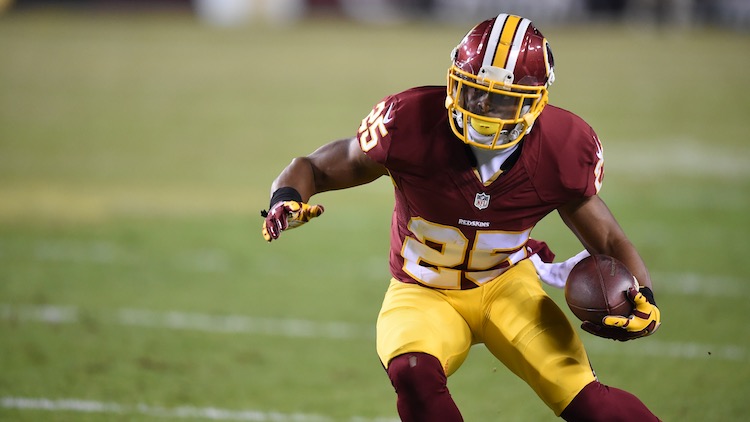Supreme Court Says Disparaging Trademark Names Are Protected

The smarter way to stay on top of broadcasting and cable industry. Sign up below
You are now subscribed
Your newsletter sign-up was successful
A new Supreme Court decision—Matal v. Tam—could restore federal protections to trademarks of the Washington Redskins NFL team but would not shield it if the FCC concluded the name was a racial slur.
That is according to public interest attorney John Banzhaf.
The case involved an appeals court decision-—regarding an Asian-American band trying to trademark the name "Slants"—that the disparagement provision in law that prohibits trademarks that "disparage persons, institutions, beliefs, or national symbols" is an unconstitutional abridgement of free speech—it is usually the most controversial speech that is most in need of protecting.
The Supreme Court upheld that decision convincingly, 8-0.
The government had defended the clause, saying it only affected government speech. But the High Court said trademarks are private speech protected by the First Amendment. "This Court exercises great caution in extending its government-speech precedents, for if private speech could be passed off as government speech by simply affixing a government seal of approval, government could silence or muffle the expression of disfavored viewpoints," the court said. "The [disparagement clause] thus reflects the government’s disapproval of a subset of messages it finds offensive, the essence of viewpoint discrimination."
Related: Redskins Say Canceling Trademark Was Unconstitutional
Banzhaf filed a petition to deny the renewal of Washington Redskins owner Dan Snyder's Washington radio station, WWXX-FM, over its use of the term "Redskins" on-air to refer to the team. He also targeted KNBC-TV and other stations over use of the name on air.
The smarter way to stay on top of broadcasting and cable industry. Sign up below
The Supreme Court actually declined to hear the appeal of the Patent & Trademark Office decision to cancel federal protection of the Redskins name, but that was because a lower court had yet to rule, so it was more about the timing of the filing, which the court signaled was premature.
The Washington Redskins were hoping the court would combine their case with the case of the band name the court just decided, but the decision is a victory for the team even if it was not included on the title page.
"The decision has an immediate impact on closely watched efforts to cancel the federal trademark registrations for the NFL’s Washington Redskins," said Christopher Larus, partner and chair of the Minneapolis IP and Technology Litigation Group at Robins Kaplan LLP, in following the ruling. "With this decision, those longstanding registrations will stay in place."
"The Washington Redskins, who have been fighting disparagement challenges to their Redskins trademarks for more than twenty-five years, will surely benefit from this decision," said Catherine Farrelly of the New York media and entertainment law firm Frankfurt Kurnit Klein + Selz. "The Trademark Trial and Appeal Board’s 2014 decision cancelling six Redskins trademark registrations on the basis that they are disparaging will not be able to be upheld, and the registrations should be reinstated in due course."
“The government defends free speech around the world because it knows when free speech is threatened, religious minorities suffer,” said Hannah Smith, senior counsel at Becket, a non-profit religious liberty law firm that says it has teamed with the government in the past to fight laws banning insulting or defaming religious speech. “Whether politically correct or not, speech should be protected here at home as well as abroad,” Becket said.
The National Congress of American Indians and the Change the Mascot campaign clearly recognized the import of a decision that federal trademarks, even offensive ones, can be registered but called on the NFL to change the name. “If the NFL wants to live up to its statements about placing importance on equality, then it shouldn’t hide behind these rulings, but should act to the end this hateful and degrading slur.”
Contributing editor John Eggerton has been an editor and/or writer on media regulation, legislation and policy for over four decades, including covering the FCC, FTC, Congress, the major media trade associations, and the federal courts. In addition to Multichannel News and Broadcasting + Cable, his work has appeared in Radio World, TV Technology, TV Fax, This Week in Consumer Electronics, Variety and the Encyclopedia Britannica.

